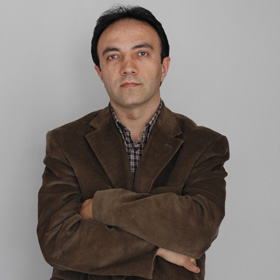Ethno-religious narratives of citizenship in Turkey:
Fabricating citizens through national education
(2016) Research and Policy on Turkey, 1:2, 119-131.
Abstract:
This article aims to explore the ways in which national education curricula have impacted national citizenship in Turkey. It will be argued that the Kemalist pillars of Turkish citizenship have started to be challenged by means of globalization, identity politics, religious revival and European integration since the 1980s. Turkey has been going through a process of social and political change since the late 1990s, especially with regard to the political recognition of ethno-cultural and religious diversity, as well as to the transformation of the debates about national citizenship. It is obvious that national education is one of the leading institutions deployed by the state to construct national citizens favouring its dominant perspectives with regard to the management of ethno-cultural and religious diversity. Shedding light on the historical evaluation of national citizenship in Turkey, this article will claim that the Turkish national citizenship regime still bears strong ethno-cultural and ethno-religious elements originating from the Ottoman millet system despite the on-going processes of Europeanization in different spheres of social and political life.

